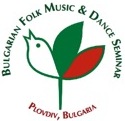About Us
* THE BULGARIAN FOLK MUSIC & DANCE SEMINAR WILL TAKE PLACE AGAIN IN 2026. We will be updating the website in the next couple of months – however, we are leaving the 2025 information in place to provide an idea of our program and teaching staff. Please do not try to register yet! This red note will disappear when we’re ready to go. Thank you, and hope to see you in 2026! (Posted November 11, 2025.)
Prof. Dr. Lyuben Dossev — Seminar Program Director
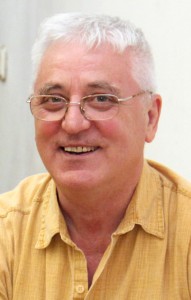
Lyuben Dossev was born n 1953 in Pleven, North Bulgaria. He started to play kavel as a small child, following in the footsteps of his father Tsvetan Dossev, who played kaval in the Severnyashki Ensemble. As early as the 7th grade, Lyuben was recruited by youth folk camps to teach kaval to younger children. Upon graduating from the Music High School in Pleven, he moved to Plovdiv to attend the Academy of Music, Dance and Fine Arts “Prof. Asen Diamandiev.” While studying at the Academy, he helped found the vocational music high school in the town of Shiroka Lûka in the Rhodope mountains, the first of its kind in Bulgaria. Lyuben received his bachelor’s degree from the Academy and has been teaching there ever since; he later also earned his doctorate degree from the Academy. In 2004, Lyuben was elected Dean of the Department of Music Folklore, Choreography and Art at the Academy. In 2008, he became Bulgaria’s first kaval player to achieve full professorship and was elected Vice Rector of the Music Academy. In 2013, Lyuben became only the second folk musician to be honored with the highest possible academic title, “Member of the Bulgarian Academy of Sciences and Arts.” Lyuben also served as Director of the Department of Language and Professional Education at the Academy in Plovdiv. He has taught nearly all of the current generation of Bulgaria’s best-known kaval players and has been a mentor for many young musicians, as well as colleagues, at the Academy. Lyuben has taught numerous times at folk camps in the U.S. In 2013, Lyuben Dossev was a special guest performer in the Christmas production of the Washington Revels called Echos of Thrace. This one-of-a-kind opportunity he shared with his wife, Tanya Dosseva, his daughter Tzvety Dosseva, as well as Larry Weiner and Margaret Loomis. During this trip to the U.S., Lyuben also performed for distinguished guests at the Bulgarian Embassy in Washington D.C. with his family. Lyuben has recently retired from his long teaching career at the Academy. He has been the Program Director for the Bulgarian Folk Music & Dance Seminar since its inception in 2005 and continues to serve in this role again this year.
Larry Weiner – International Program Coordinator
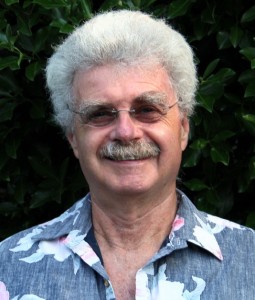 Larry Weiner, from Silver Spring, Maryland (near Washington, DC) serves as one of the International Program Coordinators for the Bulgarian Folk Music and Dance Seminar in Plovdiv. He has been involved with Balkan traditional music and dance since the early 1960s. Principally a dance researcher, he has made numerous trips to Bulgaria, Yugoslavia, Greece, Italy and Hungary to study traditional dance in its native setting. Larry has taught Balkan dance workshops throughout North America and has directed various Balkan music and dance camps for over 40 years. In addition to his strong background in traditional dance, Larry plays tûpan (big drum) in several traditional instrument bands in the Washington, DC area. He is an avid Bulgarian folk music collector, most recently focusing on music recorded before 1945. In 2004, Larry developed the original concept for the Bulgarian Folk Music and Dance Seminar at the Music Academy in Plovdiv.
Larry Weiner, from Silver Spring, Maryland (near Washington, DC) serves as one of the International Program Coordinators for the Bulgarian Folk Music and Dance Seminar in Plovdiv. He has been involved with Balkan traditional music and dance since the early 1960s. Principally a dance researcher, he has made numerous trips to Bulgaria, Yugoslavia, Greece, Italy and Hungary to study traditional dance in its native setting. Larry has taught Balkan dance workshops throughout North America and has directed various Balkan music and dance camps for over 40 years. In addition to his strong background in traditional dance, Larry plays tûpan (big drum) in several traditional instrument bands in the Washington, DC area. He is an avid Bulgarian folk music collector, most recently focusing on music recorded before 1945. In 2004, Larry developed the original concept for the Bulgarian Folk Music and Dance Seminar at the Music Academy in Plovdiv.
Iliana Bozhanova – Dance Program Coordinator
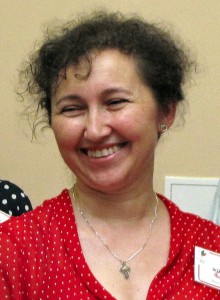
Since October of 2004, Iliana has been the director and choreographer of Representative Folk Ensemble Voivodintsi, which has 150 dancers and singers who range in age from 5 to 80 years old. Throughout the years, Iliana has also worked with many recreational groups and ensembles in the Netherlands, Norway, Japan, Taiwan, Hong Kong, Switzerland, Germany, United Kingdom, Israel, Indonesia, Belgium, Canada and the United States. In the U.S., she is also well known as a dance teacher at dozens of folk dance clubs and camps, including Stockton Folk Dance Camp, EEFC East and West Coast Balkan Music & Dance Workshops, Balkanalia, Old World Music & Dance, Pinewoods, Mainewoods and others. She has lectured at many colleges and universities around the world. Since 2005, Iliana has organized many tours all over Bulgaria for people from around the world. Her goal is to introduce Bulgarian folklore groups – professional, amateur and authentic/traditional – to the international guests. In addition to working as a dance teacher and choreographer, until 2004, Iliana also worked as an architectural draftsperson. For more information, visit Iliana Bozhanova’s web site
Dilyana Kurdova – International Program Coordinator & Assistant to the Program Director
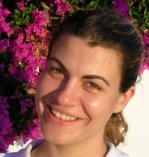
Dilyana Kurdova, PhD, is a researcher of Bulgarian traditional dance folklore and a member of several study groups at the International Council for Traditions of Music and Dance, (ICTMD), an NGO in formal consultative relations with UNESCO. She currently is the secretary of the ICTMD Study Group on Music and Dance of Southeastern Europe with publications in several Bulgarian and international journals (profile with papers in Academia.edu here).
Dilyana is also the founder of the Phoenix Perpeticum Foundation which collects, archives and publishes old video and music material from Bulgaria and the Balkans. In 2023, she published her first book on the topic of symbolism in Bulgarian traditional female costumes, which sold more than 3,000 copies in a year. With more than 290 dance workshops in different countries since 2013, Dilyana is a frequent lecturer in Bulgaria and abroad on the topics of recreational folk groups, intangible cultural heritage and traditional Bulgarian dance folklore, as well as a frequent judge in folklore dance competitions in Bulgaria. Dilyana’s education includes:
- International and EU Studies, Panteion University, Athens, Greece (bachelor’s degree)
- EU Projects in the Public and Private Sector, Hochschule Bremen, Germany (master’s degree)
- Waldorf education teacher (a 3-year course, Waldorfonderwijs)
- Bulgarian Folklore Choreography, Varna Free University, Varna, Bulgaria (master’s degree)
- D. in Bulgarian Folklore Choreography with a thesis topic “Transformations of traditional dances in recreational dance clubs in Bulgaria and Western Europe” (in Bulgarian), South-West University, Blagoevgrad, Bulgaria.
Cathie Springer – Translator, Editor
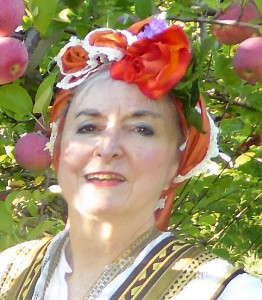 Cathie Springer, who lives in New Brunswick, NJ, serves on the Administrative Team of the Seminar as Bulgarian/English translator and editor. She was also interpreter in the dance classes at the Seminar from 2005-2010 as well as in 2015 and taught the Bulgarian language course at the Seminar from 2006-2010. Cathie is a graduate of the University of Pennsylvania and the Bulgarian Folk Dance Teaching program of the School for Leaders of Amateur Activities in Plovdiv. She has been Artistic Director of the “Bosilek” Bulgarian Folk Dance Ensemble in New York City since 1981. Cathie is also actively involved in the dance and music connected with the Norwegian Hardanger fiddle; she is editor of the Hardanger Fiddle Association of America’s quarterly journal, Sound Post and Chair of the HFAA’s annual music and dance workshop.
Cathie Springer, who lives in New Brunswick, NJ, serves on the Administrative Team of the Seminar as Bulgarian/English translator and editor. She was also interpreter in the dance classes at the Seminar from 2005-2010 as well as in 2015 and taught the Bulgarian language course at the Seminar from 2006-2010. Cathie is a graduate of the University of Pennsylvania and the Bulgarian Folk Dance Teaching program of the School for Leaders of Amateur Activities in Plovdiv. She has been Artistic Director of the “Bosilek” Bulgarian Folk Dance Ensemble in New York City since 1981. Cathie is also actively involved in the dance and music connected with the Norwegian Hardanger fiddle; she is editor of the Hardanger Fiddle Association of America’s quarterly journal, Sound Post and Chair of the HFAA’s annual music and dance workshop.
Margaret Loomis – Photographer, Editor
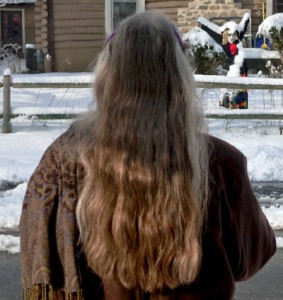 Margaret Loomis came to the world of traditional folk dance and music through international folk dancing groups in 1982. From 1985 to 1991 she was the manager for Buffalo Gap Camp for the Cultural Arts, a facility in West Virginia that hosted many different international folk music and dance workshops. She has attended the East European Folklife Center’s annual Balkan Music & Dance Workshops since 1983, and there began learning to play the santouri, a traditional Greek folk instrument. Margaret served on the Board of Directors for EEFC from 1992 to 1994, and also worked for 7 years as Administrative Director for the North American Folk Music and Dance Alliance, based in Washington, DC. She has run numerous folk dance camps and events with her husband, Larry Weiner. Margaret is also an avid photographer and gardener. She and Larry live in a log cabin in Silver Spring, Maryland.
Margaret Loomis came to the world of traditional folk dance and music through international folk dancing groups in 1982. From 1985 to 1991 she was the manager for Buffalo Gap Camp for the Cultural Arts, a facility in West Virginia that hosted many different international folk music and dance workshops. She has attended the East European Folklife Center’s annual Balkan Music & Dance Workshops since 1983, and there began learning to play the santouri, a traditional Greek folk instrument. Margaret served on the Board of Directors for EEFC from 1992 to 1994, and also worked for 7 years as Administrative Director for the North American Folk Music and Dance Alliance, based in Washington, DC. She has run numerous folk dance camps and events with her husband, Larry Weiner. Margaret is also an avid photographer and gardener. She and Larry live in a log cabin in Silver Spring, Maryland.
Tzvety Dosseva – Webmaster
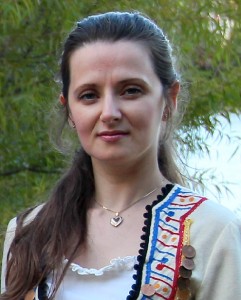 Tzvety Dosseva has been the webmaster for the Bulgarian Folk Music and Dance Seminar website since its inception. She is the daughter of Lyuben Dossev, the Seminar Program Director. Tzvety is a website developer by profession but all her life she has been immersed in Bulgarian folk music through her parents. In 1998 Tzvety moved to the United States to study computer science. Besides working on her professional career, Tzvety also started performing as a singer with Lyuti Chushki, the local Bulgarian folk music band, alongside Larry Weiner and some other outstanding musicians in the Washington, D.C. area. In late 2007 she was also invited to sing with Slaveya, the local women’s choir. Tzvety has been a committee member for the Bulgarian Community Center in the Greater Washington Area, and has taught Bulgarian singing at EEFC’s West Coast Balkan Music & Dance Workshop.
Tzvety Dosseva has been the webmaster for the Bulgarian Folk Music and Dance Seminar website since its inception. She is the daughter of Lyuben Dossev, the Seminar Program Director. Tzvety is a website developer by profession but all her life she has been immersed in Bulgarian folk music through her parents. In 1998 Tzvety moved to the United States to study computer science. Besides working on her professional career, Tzvety also started performing as a singer with Lyuti Chushki, the local Bulgarian folk music band, alongside Larry Weiner and some other outstanding musicians in the Washington, D.C. area. In late 2007 she was also invited to sing with Slaveya, the local women’s choir. Tzvety has been a committee member for the Bulgarian Community Center in the Greater Washington Area, and has taught Bulgarian singing at EEFC’s West Coast Balkan Music & Dance Workshop.



About the Academy
Academy of Music, Dance and Fine Arts “Prof. Asen Diamandiev” was founded in 1964, initially as an affiliate of the Bulgarian State Conservatory in Sofia. The idea for a branch in Plovdiv was put forward by the eminent Bulgarian musician Prof. Assen Diamandiev and was met with enthusiastic support by Prof. Vladimir Avramov and Prof. Alexander Neinski, Rectors of the Bulgarian State Conservatory. 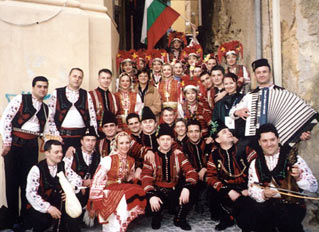 In the next 8 years the branch grew substantially and in 1972 became an independent institution under the name of Higher Institute of Music and Music Pedagogy. In the same year, degrees in Bulgarian folklore music were introduced into the curriculum, making the Institute the first and only school of higher learning in Bulgaria to offer such degrees. Prof. Assen Diamandiev was appointed as the Institute’s first Rector. Training in Bulgarian folklore choreography was introduced in 1975, and in 1995 the Institute was formally renamed The Academy of Music and Dance. Visual arts were introduced in the mid-90s completing the range of art degrees offered. Following the political and social changes that took place in Bulgaria in 1989, the Academy of Music, Dance and Fine Arts became one of the first institutions of higher learning in the country to receive full state accreditation (1998). Since 1964 more than 5,000 students have graduated from the Academy.
In the next 8 years the branch grew substantially and in 1972 became an independent institution under the name of Higher Institute of Music and Music Pedagogy. In the same year, degrees in Bulgarian folklore music were introduced into the curriculum, making the Institute the first and only school of higher learning in Bulgaria to offer such degrees. Prof. Assen Diamandiev was appointed as the Institute’s first Rector. Training in Bulgarian folklore choreography was introduced in 1975, and in 1995 the Institute was formally renamed The Academy of Music and Dance. Visual arts were introduced in the mid-90s completing the range of art degrees offered. Following the political and social changes that took place in Bulgaria in 1989, the Academy of Music, Dance and Fine Arts became one of the first institutions of higher learning in the country to receive full state accreditation (1998). Since 1964 more than 5,000 students have graduated from the Academy.



About Plovdiv, Bulgaria
“…some cities are older than their countries…”
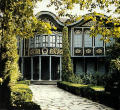 Remains of ancient civilizations and expressions of modern culture complement each other to create the irresistible and eternal beauty of this city, a true symbol of Bulgarian history and culture.
Remains of ancient civilizations and expressions of modern culture complement each other to create the irresistible and eternal beauty of this city, a true symbol of Bulgarian history and culture.  Plovdiv’s location along the banks of the Maritsa River, and its seven hills, so prominent on the Thracian plain, indicate the city’s strategic significance and account for its long tradition as one of the largest cultural and economic centers in the country throughout the ages. Here Thracians, Romans, Byzantines, Ottomans and Bulgarians came together to create an architectural wonder. Being situated as a crossroad between East and West has brought Plovdiv strong cultural and political influences from many civilizations over the centuries which have informed the city’s unique cultural identity. Being older than many ancient cities such as Rome, Athens, Carthage and Constantinople, and an almost-contemporary of Troy, Plovdiv is not only a picturesque site with many parks, gardens and historic buildings. Its museums and archaeological monuments and excavations make it a unique document where one can experience layer upon layer of history.
Plovdiv’s location along the banks of the Maritsa River, and its seven hills, so prominent on the Thracian plain, indicate the city’s strategic significance and account for its long tradition as one of the largest cultural and economic centers in the country throughout the ages. Here Thracians, Romans, Byzantines, Ottomans and Bulgarians came together to create an architectural wonder. Being situated as a crossroad between East and West has brought Plovdiv strong cultural and political influences from many civilizations over the centuries which have informed the city’s unique cultural identity. Being older than many ancient cities such as Rome, Athens, Carthage and Constantinople, and an almost-contemporary of Troy, Plovdiv is not only a picturesque site with many parks, gardens and historic buildings. Its museums and archaeological monuments and excavations make it a unique document where one can experience layer upon layer of history. 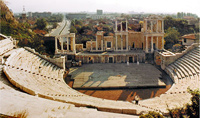 The old section of Plovdiv, called the Old Town, with houses from the National Revival period (18-19th century), is an open-air museum situated on the three hills of the ancient Trimontium. One of the most remarkable sights of the city is the ancient Roman Amphitheater (left), which has been restored and is once again in use for open-air performances. Plovdiv is magical all year round. In the winter it is fabulously white; in the spring it is covered with green and flowers, in the summer it is hushed under the scorching dry heat of Southern Thrace, in the autumn it is calm and intriguing, with ripe figs and sweet grapes dropping into soft foliage… Plovdiv can hardly be described in simple words… One should see it and feel its unique atmosphere in order to understand it. To find out more about this fascinating place, please visit this website about Plovdiv.
The old section of Plovdiv, called the Old Town, with houses from the National Revival period (18-19th century), is an open-air museum situated on the three hills of the ancient Trimontium. One of the most remarkable sights of the city is the ancient Roman Amphitheater (left), which has been restored and is once again in use for open-air performances. Plovdiv is magical all year round. In the winter it is fabulously white; in the spring it is covered with green and flowers, in the summer it is hushed under the scorching dry heat of Southern Thrace, in the autumn it is calm and intriguing, with ripe figs and sweet grapes dropping into soft foliage… Plovdiv can hardly be described in simple words… One should see it and feel its unique atmosphere in order to understand it. To find out more about this fascinating place, please visit this website about Plovdiv.



About Koprivshtitsa, Bulgaria
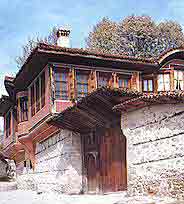 Koprivshtitsa, one of the most charming small Bulgarian towns still preserving the atmosphere of the National Revival period, is huddled in folds of the Balkan mountains 111 km (approx. 70 miles) east of Sofia. A unique combination of a legendary history and a fascinating present, no other Bulgarian museum town boasts such a large number of houses and monuments – 383 in all, most of which have been restored to their original appearance. A unique collection of ethnographical treasures, old weapons, National Revival works of art, fine fretwork, household weaving and embroidery, national costumes and typical Bulgarian jewelry has also been preserved. It was here that the first bullet of the April Uprising against the Ottoman oppressors was fired in 1876. The town of Koprivshtitsa has preserved the traits of the whole cycle of Bulgarian “renaissance” architecture, and thereby illustrates the creative searching of the Bulgarian master-builders of old which culminated in the symmetrical composition of the houses in Old Town Plovdiv. Koprivshtitsa occupies an important place in the Bulgarian folk music calendar. The Koprivshtitsa national music festival, a huge gathering of musicians, dancers, singers and storytellers from all over the country, takes place on a hill outside the town every 5 years. A smaller regional festival involving local folk groups is held annually (except when the big event takes place), usually on the weekend nearest to the Feast of the Assumption (Sveta Bogoroditsa), on August 15.
Koprivshtitsa, one of the most charming small Bulgarian towns still preserving the atmosphere of the National Revival period, is huddled in folds of the Balkan mountains 111 km (approx. 70 miles) east of Sofia. A unique combination of a legendary history and a fascinating present, no other Bulgarian museum town boasts such a large number of houses and monuments – 383 in all, most of which have been restored to their original appearance. A unique collection of ethnographical treasures, old weapons, National Revival works of art, fine fretwork, household weaving and embroidery, national costumes and typical Bulgarian jewelry has also been preserved. It was here that the first bullet of the April Uprising against the Ottoman oppressors was fired in 1876. The town of Koprivshtitsa has preserved the traits of the whole cycle of Bulgarian “renaissance” architecture, and thereby illustrates the creative searching of the Bulgarian master-builders of old which culminated in the symmetrical composition of the houses in Old Town Plovdiv. Koprivshtitsa occupies an important place in the Bulgarian folk music calendar. The Koprivshtitsa national music festival, a huge gathering of musicians, dancers, singers and storytellers from all over the country, takes place on a hill outside the town every 5 years. A smaller regional festival involving local folk groups is held annually (except when the big event takes place), usually on the weekend nearest to the Feast of the Assumption (Sveta Bogoroditsa), on August 15.
